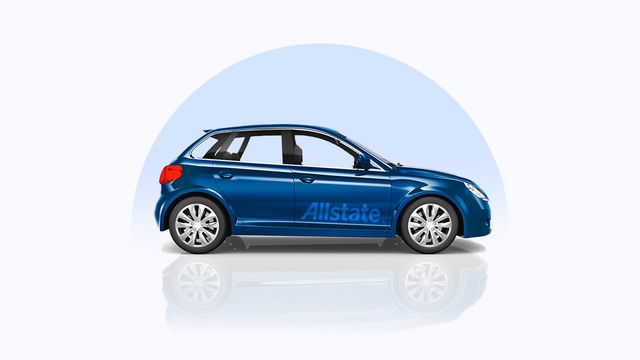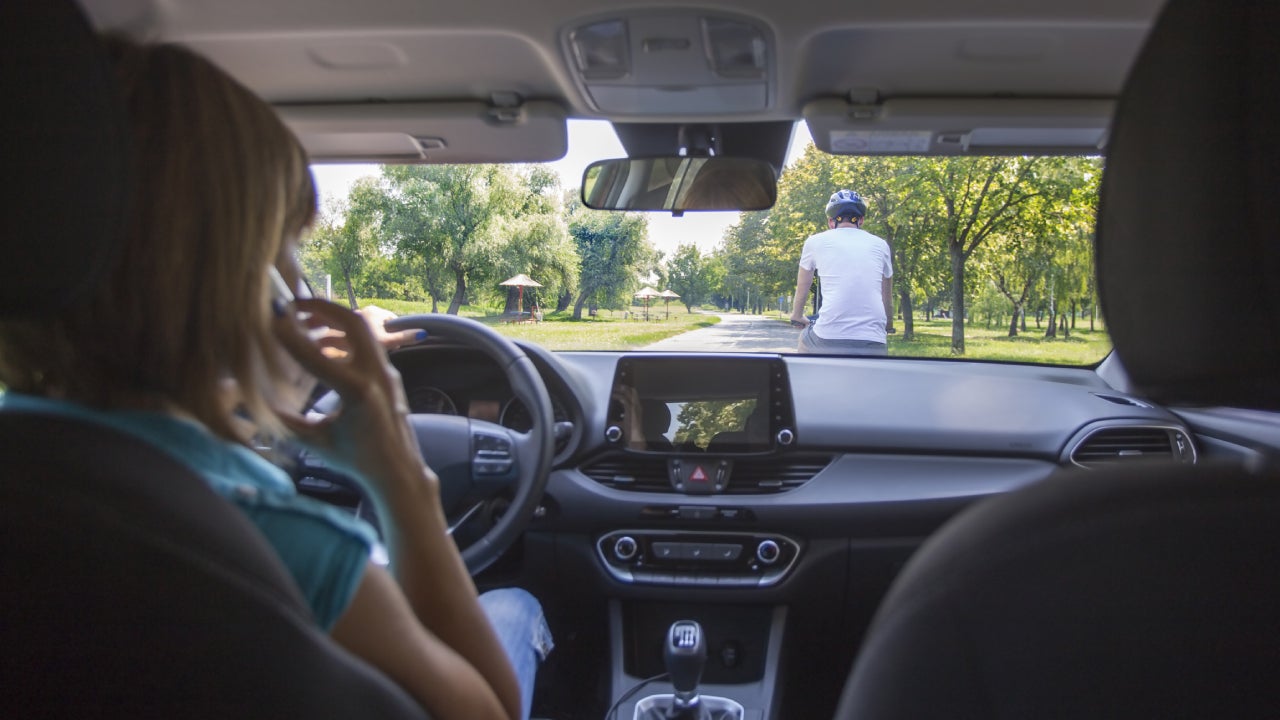Allstate Drivewise review: how it works & how much you could save

If you drive less than most but have standard auto insurance, you may be overpaying for your coverage. Allstate, like many competitors, offers a usage-based form of auto insurance. These telematics programs can calculate premiums based on how far and how safely you drive. We did a deep dive into how the Allstate Drivewise telematics program works, how much money it could save you and how well it compares to similar programs.
What is Allstate Drivewise?
Allstate’s Drivewise program is a telematics program that leverages mobile technology to help drivers potentially reduce their insurance costs through safer driving. As of November 13, 2023, the program has transitioned fully to mobile app usage, moving away from the plug-in devices previously used. Participants simply download the Allstate mobile app, which then monitors their driving behavior directly through their smartphones.
This shift enhances user convenience and accessibility, allowing the program to provide real-time feedback on driving habits. By engaging with this feedback, drivers can improve their safety on the road and may qualify for discounts on their insurance premiums based on their driving performance.
Yahoo reported in January 2025 that the state of Texas was suing Allstate for allegedly using third-party apps to collect information on drivers. The lawsuit claims that the company utilized a range of third-party apps to track drivers’ locations and verify their mileage.
Businesswire reported in April 2024 that recently released data indicates Allstate customers who chose to opt into their telematics driver safety app, Drivewise, were found to be 25 percent less likely to be involved in a serious collision. Ginger Purgatorio, executive vice president at Allstate, stated, “We find that when customers choose to use Drivewise on their Allstate mobile app, they tend to drive safer. And those who drive safer not only get in fewer accidents but also can save money on their auto insurance.”
What does Allstate Drivewise track?
Allstate Drivewise leverages advanced mobile technology to monitor and reward safe driving habits. By downloading the Allstate mobile app and activating Drivewise, users allow the app to collect a variety of driving data, which plays a crucial role in determining potential savings on insurance premiums. Below is a detailed breakdown of the data collected by Drivewise, with certain metrics that specifically influence savings noted with an asterisk (*).
Trip report data:
- Timestamps: Recorded at the start and end of each trip, including when the trip data is uploaded.
- Location: Start and end locations (latitude and longitude).
- Speed: Average speed while in motion, maximum speed during the trip and miles driven above 80 mph*.
- Duration and Distance: Total distance covered and the duration of the trip.
- Idle Time: Time spent with the vehicle running but not in motion.
Driving behaviors:
-
Braking and acceleration events: The app counts occurrences of braking and accelerating in specific speed change bands and identifies extreme cases of each.
- Hard braking events* are classified as reductions in speed of 8 to 10 mph within one second.
- Extreme braking events* involve slowing down by more than 10 mph within the same timeframe.
- High-speed events: Each instance where the vehicle exceeds 80 mph is recorded*.
- Time ranges: Miles driven during different times of day, which may impact risk assessment*.
Additional data collected:
- Event details: Includes type, duration, start and end specifics, speed changes and method of detection for each recorded event.
- GPS trail: Analyzed every second and persisted every 30 meters to include time, position, speed and accuracy.
- System and device information: Including mobile software version, type of mobile device and the version of the Allstate mobile app used during the trip.
- Trip termination: Reasons for ending a trip, such as low battery or app closure.
- Trip rejection: Reasons why a trip might be excluded from the driving history, such as illogical data from non-driving activities.
By actively monitoring these parameters, Drivewise not only helps promote safer driving but also provides personalized feedback and potential rewards through premium discounts. This data-driven approach aims to align financial incentives with safe driving behavior, benefiting both the insurer and the insured.
How to enroll in Allstate Drivewise
To get started with Drivewise, download the Allstate mobile app onto your smartphone and create an account at AllstateRewards.com. Note that the rewards drivers can earn may vary according to state regulations. For instance, Drivewise savings are not available in California and Alaska. Contact a local Allstate agent for details about the Drivewise program in your area.
What requirements are needed to use Allstate Drivewise?
To ensure that Allstate Drivewise functions correctly and can accurately track your driving habits, there are several requirements you must meet:
- Location services: Location detection must always be turned on. The app uses this data to automatically detect when a trip starts and ends. Without location services enabled, the app cannot collect trip information or provide personalized feedback, which may impact your potential savings.
- Battery power: Your mobile phone should have at least 5 percent battery power to ensure that the app can function throughout your trips. If your phone powers down during a trip due to low battery, the trip may not be recorded.
- App settings on iOS: You should allow “Motion and Fitness” access and set your location access to ‘Always’ with ‘Precise Location’ enabled to allow the app to monitor your trips effectively.
- App settings on Android: It’s necessary to allow “Physical Activity,” set your location access to “Always,” and ensure that ‘Power Saving Mode’ is turned off. For devices running Android OS 12, confirm that ‘Precise Location’ is set to “On.”
- Minimum travel speed: The app is designed to start recording a trip when your vehicle travels at least 15 mph for a minimum of one minute, such as a drive from home to your local supermarket.
By meeting these requirements, you enable Drivewise to collect detailed information about your driving patterns, potentially leading to savings on your insurance premiums through safer driving practices.
Who should use Allstate Drivewise?
Drivewise may be a good option for drivers who are generally safe and careful when behind the wheel. If you’re an Allstate customer and you tend to drive within the speed limits, avoid heavy traffic and frequent braking, and don’t often drive at night, you may save money on your car insurance. However it’s worth noting that, like some other telematics programs, unsafe driving habits could result in an increased premium.
Drivewise has other potential benefits as well. The app includes crash detection, which can help in the vital moments after an accident. If the app senses a major impact while the vehicle is traveling at a speed of at least 25 mph, it will send a notification through the app to offer assistance. Drivewise also features personalized feedback that can help you improve your driving skills — this can be helpful if you’ve got marks on your license from past infractions, or if you have a teen driver in your family who is still learning how to drive safely.
Some drivers have concerns about data privacy with telematics use, so if you’re not comfortable sharing your driving patterns with your insurer, Drivewise may not be right for you.
How much can I save with Allstate Drivewise?
Allstate doesn’t state exactly how much money drivers could save through the Drivewise program. The total premium savings linked to Drivewise will be contingent on the customer’s driving habits. However, the company does say that drivers receive a participation discount for signing up for the program, and if at least 50 trips are taken prior to renewal, their participation discount will remain.
Pros and cons of Allstate Drivewise
Allstate Drivewise may help some drivers save on their premium, but the program isn’t right for everyone. Below are some of the key perks and common Allstate Drivewise complaints:
Pros
- Mobile app integration: Drivers can access their insurance card, policy information and Drivewise account all in one place
- Insight into driver behaviors: This includes real-time alerts and a summary of driving habits over time.
- App tracks when drivers reach for the phone: This can increase awareness and lead to safer driving habits.
- Crash detection: If the app registers an accident, it can help drivers get claim help, call emergency services or contact roadside assistance.
- Discounts: Drivers get a participation discount and the potential to see an overall premium reduction depending on driving behaviors.
Cons
- Braking limitations: Drivers in large cities or areas with heavy traffic may need to brake frequently, which the app discourages.
- Speed limitations: Some highways may allow speeds at or above 80 miles per hour, which is perceived negatively for Drivewise purposes.
- May not benefit infrequent drivers: Those who do limited driving or work from home may see more savings with usage-based car insurance.
- Data privacy may be a concern: Allstate agents and customer service representatives can see driver data gathered by Drivewise.
- Premium may increase: Allstate notes that drivers who have riskier driving behaviors may see their premiums increase as a result.
Even if Drivewise is not the right fit for you, it’s typically smart to do some comparison shopping and obtain multiple car insurance quotes. This will help you get a feel for average insurance rates in your area and what insurance company is right for you.
Comparing Allstate Drivewise to other telematics programs
| Allstate | State Farm | Progressive | USAA | Geico | |
|---|---|---|---|---|---|
| Tracks hard braking | X | X | X | X | X |
| Tracks harsh acceleration | X | X | X | X | X |
| Tracks cornering | X | X | X | ||
| Tracks phone use | X | X | X | X | |
| Tracks speeding | X | X | X | ||
| Tracks late-night driving | X | X | X | X | |
| Enrollment discount | 10% | 10% | $94 (average) | 10% | Undisclosed |
| Safe driving discount | Up to 40% | Up to 30% | $231 (average) | Up to 30% | Up to 25% |
| Can raise rates | X | X | X |
As you are conducting your Allstate Drivewise review and considering which telematics program might be right for you, it can also be useful to look at how users rate these apps and how they are scored by industry standards, such as the J.D. Power 2025 U.S. Auto Insurance Study, which gauges customer satisfaction with various insurers’ usage-based programs. The table below provides a comparison of app ratings and J.D. Power scores.
| Apple Store | Google Play | J.D. Power | |
|---|---|---|---|
| Allstate | 4.8/5.0 | 4.0/5.0 | 649/1,000 |
| State Farm | 4.5/5.0 | 4.1/5.0 | 643/1,000 |
| Progressive | 4.8/5.0 | 4.6/5.0 | 628/1,000 |
| USAA* | 4.5/5.0 | 3.8/5.0 | 679/1,000 |
| Geico | 4.8/5.0 | 4.6/5.0 | 646/1,000 |
*USAA is not officially ranked by J.D. Power due to eligibility restrictions.
Frequently asked questions
Why we ask for feedback Your feedback helps us improve our content and services. It takes less than a minute to complete.
Your responses are anonymous and will only be used for improving our website.
You may also like


Auto insurance for high-risk drivers in Ohio

Car insurance for high-risk drivers in Michigan




